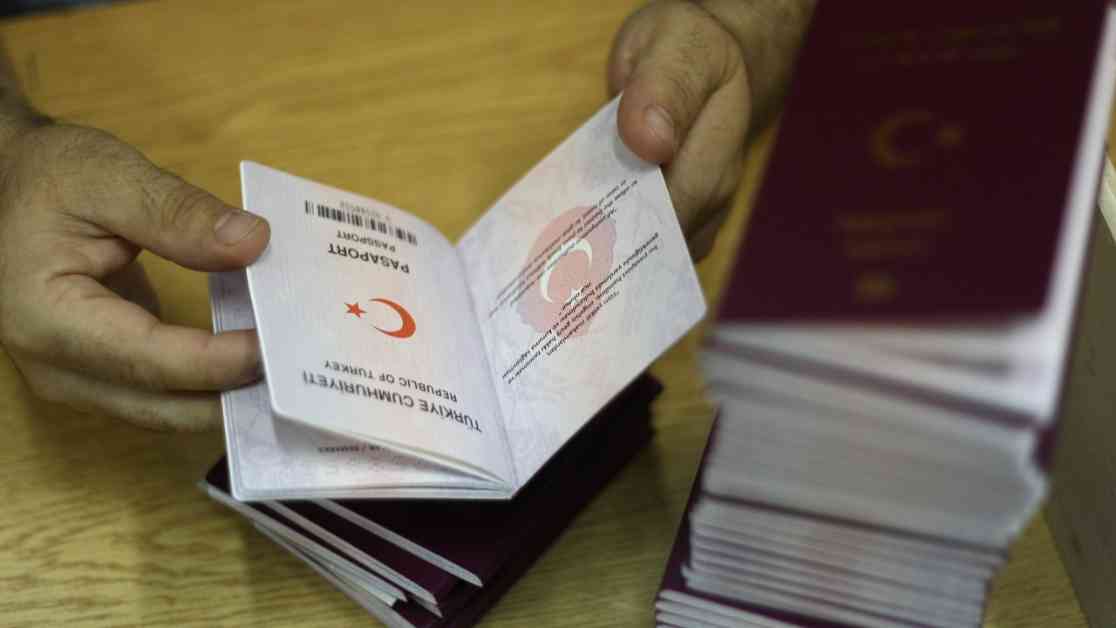The difficulties Turkish citizens face with Schengen visas continue, and the Ministry of Foreign Affairs has presented a series of proposals to the European Union to ease the ongoing crisis. According to diplomatic sources shared with Oksijen Newspaper, one of the ministry’s proposals is that Turkish citizens with valid visas from non-Schengen Western countries should not have to reapply for a visa to travel to EU countries. If Brussels accepts this formula, a Turkish citizen with a visa from a country like the US or the UK could travel to EU countries bypassing the Schengen visa bureaucracy.
Turkey, the only candidate country without visa exemption among the EU countries, has also requested a reduction in the required documents for Schengen applications. According to EU data, the missions of the EU in Turkey received 1,055,885 visa applications in 2023, making Turkey the second in terms of applications after China. The Ministry of Foreign Affairs believes that the request for numerous documents is one of the main factors slowing down the process.
Additionally, the Ministry proposed prioritizing visa applications for students, academics, business people, truck drivers, and those made for medical reasons. Many individuals from these professional groups have complained about not being able to travel on time due to delayed visas. While the EU claims that the rejection rate has not increased percentage-wise, many Turkish citizens receive very short-term visas despite positive feedback. The Ministry emphasized in discussions with Brussels that it is unacceptable to issue a 10-day visa to someone who has received 2-3 Schengen visas, and regular travelers to the EU should receive longer-term visas.
In terms of visa problems, discussions between Turkey and the EU are ongoing, with Brussels yet to provide definitive responses to Turkey’s proposals. The Ministry of Foreign Affairs also recommended that the EU ask intermediary companies to open more appointments and categorize applications based on different criteria to alleviate the crisis.
Moreover, the issue of visa appointments becoming increasingly difficult through intermediary companies has turned into a crisis after previous visa debates. Particularly, some organizations under the guise of ‘consultancy companies’ pre-book appointments and sell them to customers at an additional cost, further increasing the already rising Schengen application fee. Many individuals are finding themselves working with multiple intermediaries to secure a visa appointment on a suitable date.
Furthermore, the recent informal meeting where Foreign Minister Hakan Fidan met with the foreign ministers of EU candidate countries at Gymnich Castle in Germany is seen as a positive development for Turkey-EU relations. The meeting served as an opportunity for Turkey to continue its efforts to expand multi-entry and long-term visas. Despite the positive outcome of the meeting, the issue of visa applications remains a focal point in discussions between Turkey and the EU.
In conclusion, the increasing iltica (asylum) applications from Turkey to EU countries have led to stricter visa application assessments by the EU. The EU cites the rising number of iltica applications from Turkey to EU countries as a reason for the scrutiny, with a significant increase observed in recent years. The ongoing discussions between Turkey and the EU revolve around various factors, including the broad definition of ‘terrorism’ by Turkey and the country’s slow progress in meeting democratic and economic standards set by the EU. The current situation continues to pose challenges for closer relations between Turkey and the EU, with countries like France and the Greek Cypriot Administration blocking positive steps that could improve relations.





















